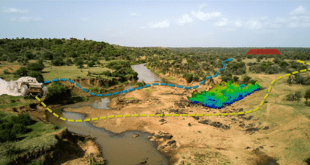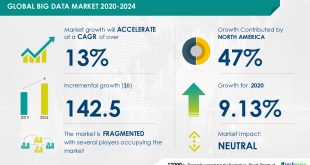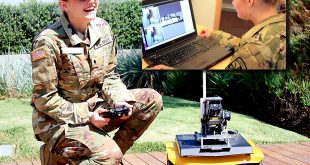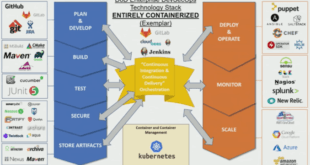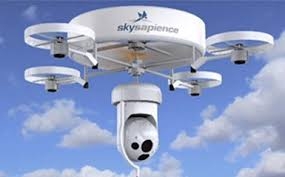Artificial Intelligence technologies aim to develop computers, or robots that match or exceed the abilities of human intelligence in tasks such as learning and adaptation, reasoning and planning, decision making and autonomy; creativity; extracting knowledge and making predictions from data. Within AI is a large subfield called machine learning …
Read More »DARPA RACER-Sim will employ simulation tools to accelerate development of military autonomous ground vehicles for the battlefield
Modelling is the process of representing a model (e.g., physical, mathematical, or logical representation of a system, entity, phenomenon, or process) which includes its construction and working. This model is similar to a real system, which helps the analyst predict the effect of changes to the system. Simulation of a …
Read More »Big data analytics trends and market
Big data is a term that refers to the kind of data sets that are too large or too complex for traditional data processing applications. Fast-growing mobile data traffic, cloud computing traffic, as well as the rapid development of technologies such as artificial intelligence (AI) and the Internet of Things …
Read More »Civil Rights protection on Social Media through Human rights-based AI/Machine Learning
Security is the state of being free from threat. To mitigate the threat, we require technology. The technology uses scientific knowledge in the form of new processes, materials, devices, systems or tools. For all of us, most important is human security which means freedom from threats to our lives, safety and …
Read More »Natural Language Processing (NLP) can automate military intelligence and provide hands-free communication between a soldier and robots
Natural language processing (NLP) refers to the branch of computer science—and more specifically, the branch of artificial intelligence or AI—concerned with giving computers the ability to understand text and spoken words in much the same way human beings can. The technology can then accurately extract information and insights contained …
Read More »DARPA grant to Penn State for modelling disruptions to the U.S. financial system
Financial markets refer broadly to any marketplace where the trading of securities occurs, including the stock market, bond market, forex market, and derivatives market, among others. Financial markets are vital to the smooth operation of capitalist economies. When financial markets fail, economic disruption including recession and unemployment can result. …
Read More »DevSecOps for quick delivery of mission-critical capabilities
As the speed and frequency of releases increase, traditional application security teams cannot keep up with the pace of releases to ensure each release is secure. To address this, organizations need to build in security continuously across the SDLC so that DevOps teams can deliver secure applications with speed and …
Read More »DevOps running on Kubernetes, and Containers, is the Future of Software
DevOps is a software engineering culture and practice that aims at unifying software development (Dev) and software operation (Ops) and removing the traditional barriers between the two. DevOps is an ideology comprising three pillars—organizational culture, process, and technology and tools—to help development and IT operations teams work collaboratively to build, test, …
Read More »Tethered Drones or UAS, Hovering platforms, and Towed parafoil system provide long range Communications and Surveillance for Combatting terrorism
Militaries have long recognized the advantages of height for surveillance platforms to overcome the Horizon limitations because of curvature of earth, therefore it has been using many such platforms like baloons, and aerostats. Security forces have also found that countering today’s asymmetric threats, which can occur at any time and …
Read More »DARPA ARCOS program developing Automated Rapid Software Certification tools for Military Systems, Platforms
Military systems are increasingly using software to support functionality, new capabilities, and beyond. Before a new piece of software can be deployed within a system however, its functional safety and compliance with certain standards must be verified and ultimately receive certification. As the rapid rate of software usage continues to …
Read More » International Defense Security & Technology Your trusted Source for News, Research and Analysis
International Defense Security & Technology Your trusted Source for News, Research and Analysis

